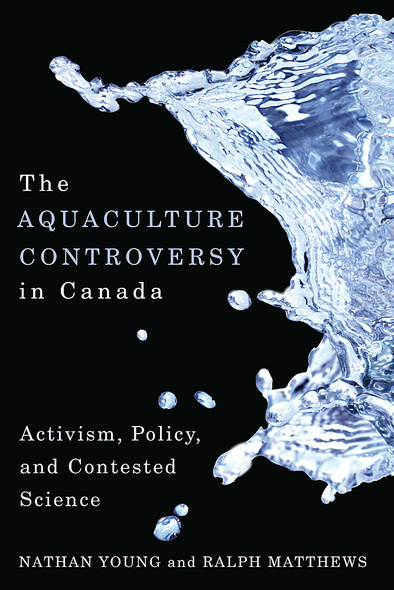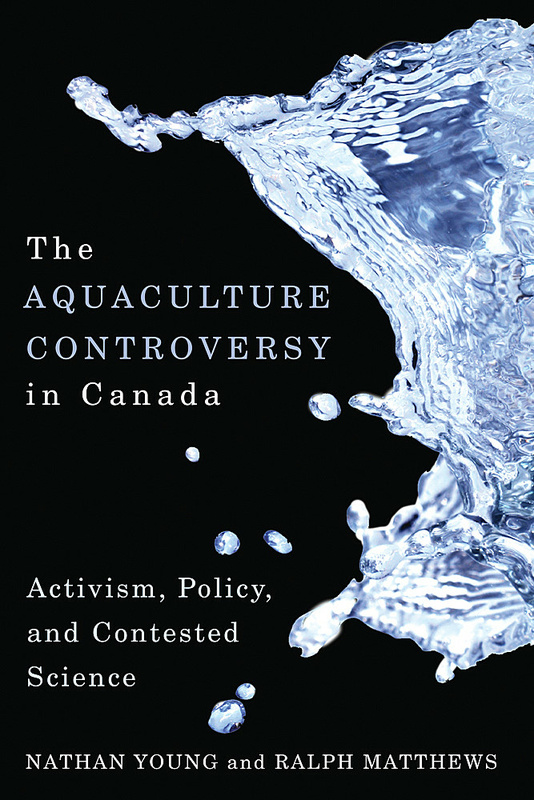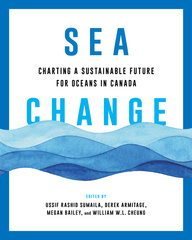
The Aquaculture Controversy in Canada
Activism, Policy, and Contested Science
Aquaculture – the farming of aquatic organisms – is one of the most promising but controversial new industries in Canada. Advocates believe aquaculture has the potential to solve serious environmental and food supply problems resulting from global overfishing. Critics argue that industrial-scale aquaculture poses unacceptable threats to human health, local communities, and the environment.
The Aquaculture Controversy in Canada is not about the techniques and methods of aquaculture, but it is an examination of the controversy itself. Rather than picking sides, Nathan Young and Ralph Matthews draw on extensive research to determine why the issue has been the centre of intense debate in Canada. They argue that the conflict is both unique, reflecting the specific history of coastal and resource development in Canada, and rooted in major unresolved questions confronting democratic societies around the world: the environment, rights, knowledge, development, and governance. The inability of the industry and its advocates to address the complexities of the controversy, they argue, has given a powerful advantage to aquaculture’s opponents and fuelled the debate.
Comprehensive and balanced, this book explores the issues at the heart of the aquaculture controversy -- the relationship between humanity and the environment, notions of rights and justice, and the rise of intense local-global interactions and conflicts. It will appeal to anyone interested in environmental controversies, public policy, natural resources, or coastal issues.
The Aquaculture Controversy in Canada will appeal to anyone interested in environmental controversies, public policy, natural resources, or coastal issues.
Awards
- 2011, Winner - K.D. Srivastava Prize for Excellence in Scholarly Publishing
The Aquaculture Controversy is a valuable contribution to a critical Canadian policy debate—one that is bound to inform future studies on the unfolding blue revolution and its ongoing Canadian impacts.
Young’s and Matthews’ Aquaculture Controversy in Canada deserves special attention for at least two reasons: Firstly, because it is a book vigorously written to unfold the many layers of the aquaculture debate with Canada as a major player as well as — one is tempted to overstate — a ‘victim’ of the global industry. Secondly, the book is an excellent example of good sociology
This book offers intriguing insights into the debates about aquaculture and the reasons why the various parties, whether for or against, are so entrenched in their views. It should be of interest to current stakeholders in the industry as well as fisheries scientists and scholars.
The Aquaculture Controversy in Canada successfully negotiates the minefield of partisan positions and provides a clear way to grasp the multidimensional character of the aquaculture controversy.
The authors have done an excellent job of presenting the aquaculture story in Canada, especially in BC. They provide an enormous amount of basic information and analysis that permits readers to evaluate key issues such as the extent to which the social and environmental impacts of aquaculture should lead to its expansion or demise.
Nathan Young is an assistant professor of sociology at the University of Ottawa. Ralph Matthews is a professor of sociology at the University of British Columbia and professor emeritus of sociology at McMaster University.
Introduction
Part 1: A High-Speed Collision: Aquaculture as Intersection and Metaphor
1 Aquaculture in a Global Context
2 Aquaculture in a Local Context
Part 2: Knowledge Battlefield
3 Knowledge Battlefield: Science, Framing, and “Facts”
4 Knowledge Warriors? Experts and the Aquaculture Controversy
5 Media and the Knowledge Battlefield / with Mary Liston
Part 3: Political Economy
6 Aquaculture and Community Development
7 Governing Aquaculture
Conclusion
Notes
References
Index







